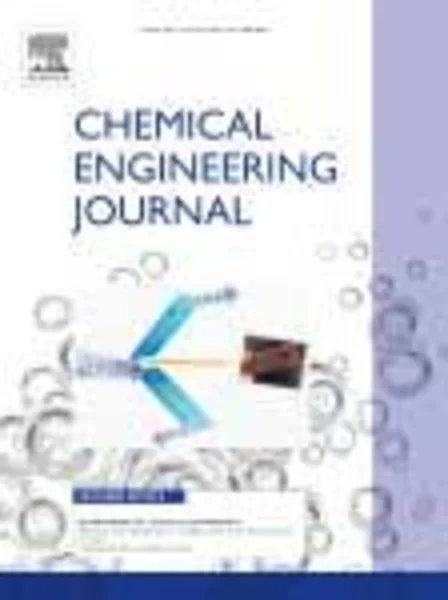-
denitrification activities and n2o production under salt stress with varying cod/n ratios and terminal electron acceptors
جزئیات بیشتر مقاله- تاریخ ارائه: 1392/01/01
- تاریخ انتشار در تی پی بین: 1392/01/01
- تعداد بازدید: 515
- تعداد پرسش و پاسخ ها: 0
- شماره تماس دبیرخانه رویداد: -
the effects of sodium chloride (nacl) on nitrogen removal and nitrous oxide (n2o) production during denitrification were investigated under various cod/n ratios and in the presence of different terminal electron acceptors. high nacl salinity hindered the denitrification rate, and the degree of inhibition was dependent on the influent cod/n ratio and terminal electron acceptor. specifically, with nitrate as terminal electron acceptor, nacl shock induced relatively higher nitrite accumulation at lower cod/n ratios than at higher cod/n ratios. without the addition of nacl, n2o did not accumulate, even when no external carbon source was added. conversely, at 20 g nacl/l salinity, n2o accumulated, regardless of the cod/n ratios and terminal electron acceptor. overall, a low cod/n ratio combined with higher no-2-n levels stimulated more n2o accumulation, particularly in response to high salt levels, and the salinity was found to be the most important factor that strongly influences the n2o production. in the absence of an external carbon source, glycogen rather than poly-β-hydroxybutyrate (phb) was the main carbon source responsible for endogenous denitrification. microbial inhibition by salt stress primarily occurred via osmotic stress rather than via ionic toxicity and oxidative stress.
مقالات جدیدترین رویدادها
-
استفاده از تحلیل اهمیت-عملکرد در ارائه الگوی مدیریت خلاقیت سازمانی و ارائه راهکار جهت بهبود
-
بررسی تاثیر ارزش وجوه نقد مازاد بر ساختار سرمایه شرکت های پذیرفته شده در بورس اوراق بهادار تهران
-
بررسی تأثیر سطح افشای ریسک بر قرارداد بدهی شرکت های پذیرفته شده در بورس اوراق بهادار تهران
-
بررسی تأثیر رتبه بندی اعتباری مبتنی بر مدل امتیاز بازار نوظهور بر نقد شوندگی سهام با تأکید بر خصوصی سازی شرکت ها
-
تأثیر آمیخته بازاریابی پوشاک ایرانی بر تصویر ذهنی مشتری پوشاک ایرانی (هاکوپیان)
-
طراحی یک سیستم اتوماتیک مبتنی بر تشخیص و خواندن دقیق پلاک فارسی خودروها
-
توسعه پایدار در معماری بازارهای سنتی (مطالعه موردی: بازار سنتی کرمانشاه)
-
اثر پروبیوتیک، پری بیوتیک و سین بیوتیک بر پاسخ ایمنی همورال جوجه های گوشتی
-
اثر اندازه ساچمه بر عملیات مکانیکی تدریجی سطحی در فولاد زنگ نزن آستنیتی
-
transient and steady-state nanoindentation creep of polymeric materials
مقالات جدیدترین ژورنال ها
-
مدیریت و بررسی افسردگی دانش آموزان دختر مقطع متوسطه دوم در دروان کرونا در شهرستان دزفول
-
مدیریت و بررسی خرد سیاسی در اندیشه ی فردوسی در ادب ایران
-
واکاوی و مدیریت توصیفی قلمدان(جاکلیدی)ضریح در موزه آستان قدس رضوی
-
بررسی تاثیر خلاقیت، دانش و انگیزه کارکنان بر پیشنهادات نوآورانه کارکنان ( مورد مطالعه: هتل های 3 و 4 ستاره استان کرمان)
-
بررسی تاثیر کیفیت سیستم های اطلاعاتی بر تصمیم گیری موفق در شرکتهای تولیدی استان اصفهان (مورد مطالعه: مدیران شرکتهای تولیدی استان اصفهان)
-
کاهش اثرات مخرب زیست محیطی در طراحی داخلی اماکن تجاری ایران
-
بررسی و تحلیل نقدهای فمینیستی ادبیات کودک و نوجوان در نشریه تخصصی کتاب ماه کودک و نوجوان (1376-1393)
-
طراحی رویداد در فضاهای شهری با رویکرد به مکان سازی خلاق
-
phytochemical screening and antibacterial activity of the ethanolic stem bark extract of eucalyptus camaldulensis
-
earning management, corporate governance and corporate social responsibility disclosure: evidence from indonesia




سوال خود را در مورد این مقاله مطرح نمایید :